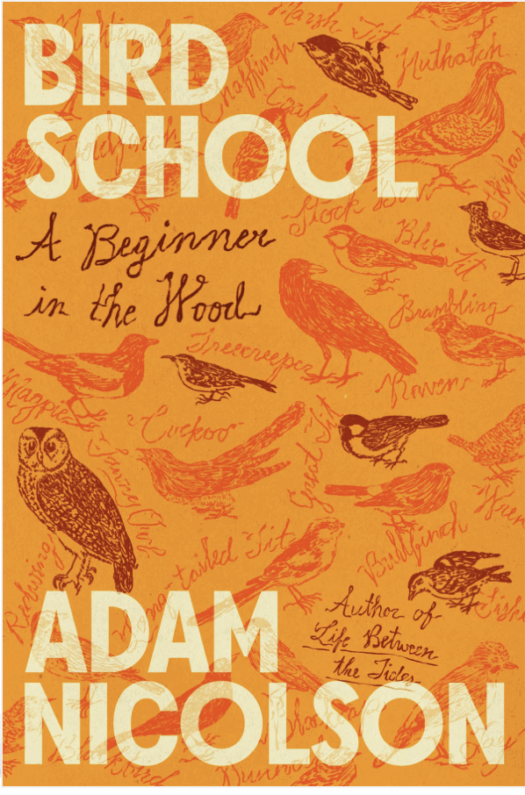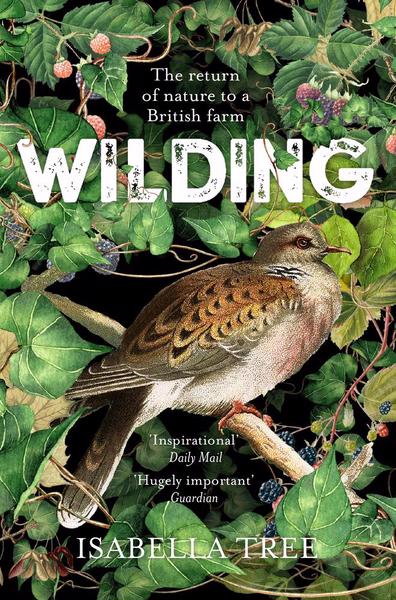Go offline with the Player FM app!
The Wisdom of the Wild: Adam Nicolson on BIRD SCHOOL & Isabella Tree on Rewilding
Manage episode 519522246 series 2397664
Writer’s Voice: compelling conversations with authors who challenge, inspire, and inform.
This week on Writer’s Voice, we turn our attention to the living world—and our place within it.
First, writer Adam Nicolson joins us to talk about his luminous new book, Bird School: A Beginner in the Wood. It’s the story of how he built a shed in his Sussex woods and spent two years learning from the birds who shared it with him. In the process, Nicolson discovered not just the intelligence of birds, but also a new way of seeing the world—a way that erases the hard line between humans and nature.
“To tend to the reality of the birds’ minds is to find yourself in a completely renewed world.” — Adam Nicholson
Then we replay an excerpt from my 2020 interview with Isabella Tree, author of Wilding: The Return of Nature. Nicolson counts her as a friend and fellow traveler in reimagining how we live with the natural world.
“We’ve grown up with a picture-postcard idea of beauty—neat edges, canalized rivers, everything controlled. We’re just beginning to understand that it’s not sustainable.” — Isabella Tree
Follow us on Bluesky @writersvoice.bsky.social and subscribe to our Substack. Or find us on Instagram @WritersVoicePodcast
Key Words: Adam Nicolson, Bird School, birds, ecology, wildlife observation, biodiversity, Writer’s Voice podcast, Isabella Tree, Wilding, Knepp Estate, rewilding, biodiversity, habitat restoration,
You Might Also Like: Isabella Tree (full interview), The Minds and Lives of Animals with Joe Shute and Brandon Keim

Segment One: Adam Nicholson
Adam Nicolson’s Bird School began with a dead raven on a Cretan roadside—and a realization that he’d been “blind and deaf” to the birds that lived around him. Determined to learn, he built an octagonal hide on his farm, complete with nest boxes in its walls, and spent two years quietly sharing space with birds, bats, and dormice.
Through that experience, Nicolson came to see birds not as objects of study but as fellow beings whose lives mirror our own in complexity, deceit, love, and song. He challenges the cultural notion that humans are separate from nature, proposing instead what he calls “fuzziness”—a recognition of the continuous flow between ourselves and the living world.
The conversation ranges from the intelligence of birdsong and the ethics of bird feeding to the return of ravens after a century’s absence, signaling the restoration of ecological wholeness.
Topics
Bird observation • Human–nature connection • Philosophy of nature • Birdsong and intelligence • Cultural ecology • Fuzziness and “the severing” • Intermediate disturbance hypothesis • Repair vs. rewilding • Language and perception • Ethical bird feeding
Segment Two: Isabella Tree

In this archival segment, Wilding author Isabella Tree describes how she and her husband transformed their intensively farmed estate at Knepp Estate into a thriving ecosystem by letting natural processes take over. Using free-roaming herbivores to mimic the ecological roles of extinct megafauna, they discovered how “scrub”—once dismissed as wasteland—is a keystone habitat supporting birds, insects, and mammals.
Tree reflects on how cultural aesthetics of control blinded us to true ecological beauty, and how witnessing the return of nightingales and other wildlife changed even her skeptical neighbors’ minds.
Topics
Rewilding • Ecological restoration • Biodiversity • Thorny scrub habitats • Changing aesthetics of nature • Farmland transformation • Wildlife revival
30 episodes
Manage episode 519522246 series 2397664
Writer’s Voice: compelling conversations with authors who challenge, inspire, and inform.
This week on Writer’s Voice, we turn our attention to the living world—and our place within it.
First, writer Adam Nicolson joins us to talk about his luminous new book, Bird School: A Beginner in the Wood. It’s the story of how he built a shed in his Sussex woods and spent two years learning from the birds who shared it with him. In the process, Nicolson discovered not just the intelligence of birds, but also a new way of seeing the world—a way that erases the hard line between humans and nature.
“To tend to the reality of the birds’ minds is to find yourself in a completely renewed world.” — Adam Nicholson
Then we replay an excerpt from my 2020 interview with Isabella Tree, author of Wilding: The Return of Nature. Nicolson counts her as a friend and fellow traveler in reimagining how we live with the natural world.
“We’ve grown up with a picture-postcard idea of beauty—neat edges, canalized rivers, everything controlled. We’re just beginning to understand that it’s not sustainable.” — Isabella Tree
Follow us on Bluesky @writersvoice.bsky.social and subscribe to our Substack. Or find us on Instagram @WritersVoicePodcast
Key Words: Adam Nicolson, Bird School, birds, ecology, wildlife observation, biodiversity, Writer’s Voice podcast, Isabella Tree, Wilding, Knepp Estate, rewilding, biodiversity, habitat restoration,
You Might Also Like: Isabella Tree (full interview), The Minds and Lives of Animals with Joe Shute and Brandon Keim

Segment One: Adam Nicholson
Adam Nicolson’s Bird School began with a dead raven on a Cretan roadside—and a realization that he’d been “blind and deaf” to the birds that lived around him. Determined to learn, he built an octagonal hide on his farm, complete with nest boxes in its walls, and spent two years quietly sharing space with birds, bats, and dormice.
Through that experience, Nicolson came to see birds not as objects of study but as fellow beings whose lives mirror our own in complexity, deceit, love, and song. He challenges the cultural notion that humans are separate from nature, proposing instead what he calls “fuzziness”—a recognition of the continuous flow between ourselves and the living world.
The conversation ranges from the intelligence of birdsong and the ethics of bird feeding to the return of ravens after a century’s absence, signaling the restoration of ecological wholeness.
Topics
Bird observation • Human–nature connection • Philosophy of nature • Birdsong and intelligence • Cultural ecology • Fuzziness and “the severing” • Intermediate disturbance hypothesis • Repair vs. rewilding • Language and perception • Ethical bird feeding
Segment Two: Isabella Tree

In this archival segment, Wilding author Isabella Tree describes how she and her husband transformed their intensively farmed estate at Knepp Estate into a thriving ecosystem by letting natural processes take over. Using free-roaming herbivores to mimic the ecological roles of extinct megafauna, they discovered how “scrub”—once dismissed as wasteland—is a keystone habitat supporting birds, insects, and mammals.
Tree reflects on how cultural aesthetics of control blinded us to true ecological beauty, and how witnessing the return of nightingales and other wildlife changed even her skeptical neighbors’ minds.
Topics
Rewilding • Ecological restoration • Biodiversity • Thorny scrub habitats • Changing aesthetics of nature • Farmland transformation • Wildlife revival
30 episodes
All episodes
×Welcome to Player FM!
Player FM is scanning the web for high-quality podcasts for you to enjoy right now. It's the best podcast app and works on Android, iPhone, and the web. Signup to sync subscriptions across devices.



